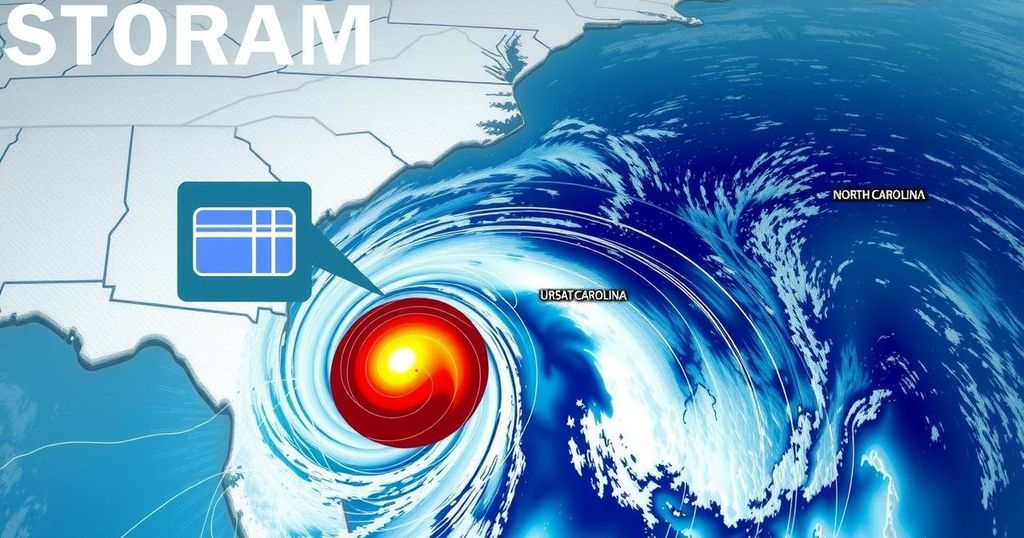Weather
AFRICA, ANTARCTICA, ANTONIO GUTERRES, ANTÓNIO GUTERRES, AUSTRALASIA, BURGESS, CLIMATE, CLIMATE CHANGE, COPERNICUS CLIMATE CHANGE SERVICE, EGYPT, EU, EUROPEAN CENTRE FOR MEDIUM - RANGE WEATHER FORECASTS, GLOBAL WARMING, GREENHOUSE GAS EMISSIONS, LOS ANGELES, NORTH AMERICA, SAMANTHA BURGESS, UN, UNITED STATES, WEATHER
Jamal Abdullah
0 Comments
2024 Marks Unprecedented Global Temperature Increase, Raising Alarms About Climate Change
In 2024, the global average temperature reached 1.6°C above preindustrial levels, marking the hottest year recorded since 1850. This alarming situation has led to intensified natural disasters worldwide, including severe wildfires in Los Angeles. Each year between 2015 and 2024 has featured among the top ten warmest years, largely due to human-induced carbon emissions. The findings highlight the urgent need for global leaders to act decisively against climate change.
In 2024, global temperatures soared to unprecedented levels, reaching 1.6 degrees Celsius above preindustrial averages, marking the hottest year in recorded history since 1850. This alarming trend comes despite warnings from global leaders at the United Nations COP27 conference in 2022 about the critical need to curb greenhouse gas emissions to prevent excessive warming. Recent data from the EU’s Copernicus Climate Change Service indicates that average global temperatures for the year averaged 15.10 degrees Celsius (59.18 degrees Fahrenheit), a situation that underscores the escalating climate crisis worldwide. The compounding effects of this warming have intensified natural disasters, notably illustrated by the catastrophic wildfires in Los Angeles that resulted in significant destruction and loss of life.
The increase in extreme temperatures has also brought widespread misery through enhanced heatwaves and flooding across different regions. According to Samantha Burgess, strategic lead for climate at the European Centre for Medium-Range Weather Forecasts, the record-setting temperatures and high atmospheric water vapor levels have contributed severely to the frequency of climate-related disasters. Furthermore, it is noteworthy that every year from 2015 to 2024 has ranked among the top ten warmest years recorded, a trend that scientists attribute largely to human-induced factors like carbon emissions from fossil fuel combustion.
This situation imposes significant challenges in addressing energy consumption, particularly with the increasing demands of technology such as artificial intelligence, which compounds the reliance on fossil fuels and makes transitioning to sustainable energy sources more urgent and complex than ever.
The phenomenon of climate change has emerged as one of the most pressing global crises of the 21st century, characterized by rising temperatures attributed largely to human activities, including the burning of fossil fuels. Global leaders have recognized the necessity of mitigating these impacts through various international agreements, including the Paris Agreement, which aims to limit warming to below 1.5 degrees Celsius over preindustrial levels. Reports from authoritative sources like the EU’s Copernicus Climate Change Service provide essential data tracking these changes, illustrating the speed and severity of climate-related effects observed in recent years.
The data from 2024 serves as a sobering reminder of the urgent challenges posed by climate change, with record-breaking temperatures and an increase in extreme weather events underscoring the need for immediate action from global leaders. The evidence clearly indicates that human activities are the primary drivers of this crisis, and without substantial changes in behavior and policy, the planet is likely to face even more dire consequences.
Original Source: www.cnet.com




Post Comment